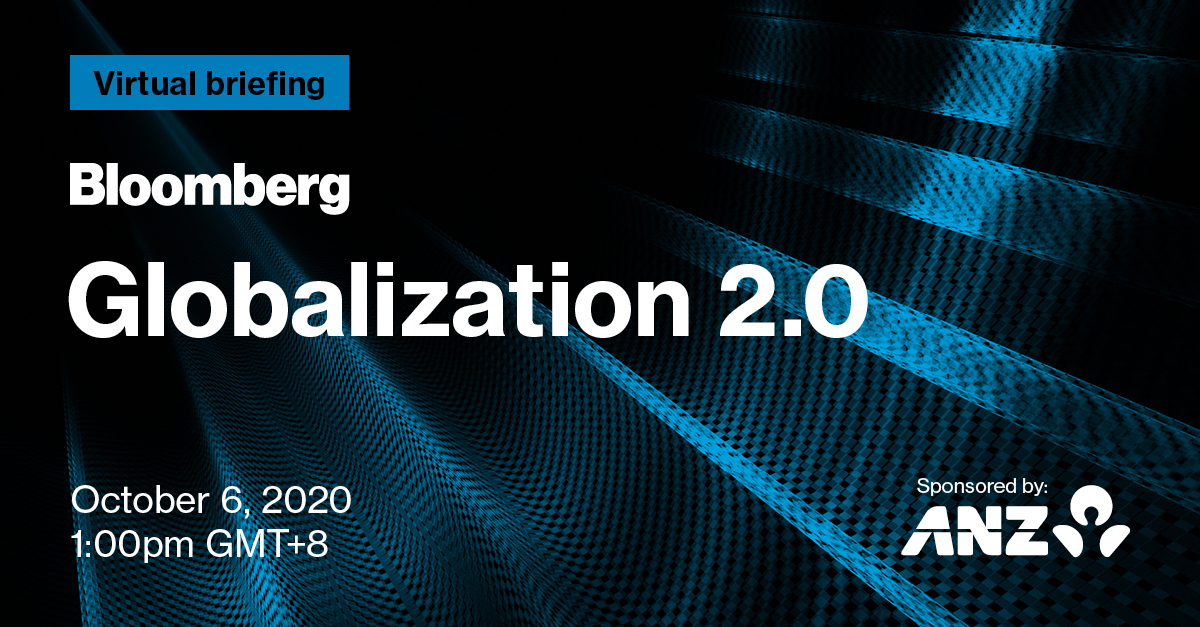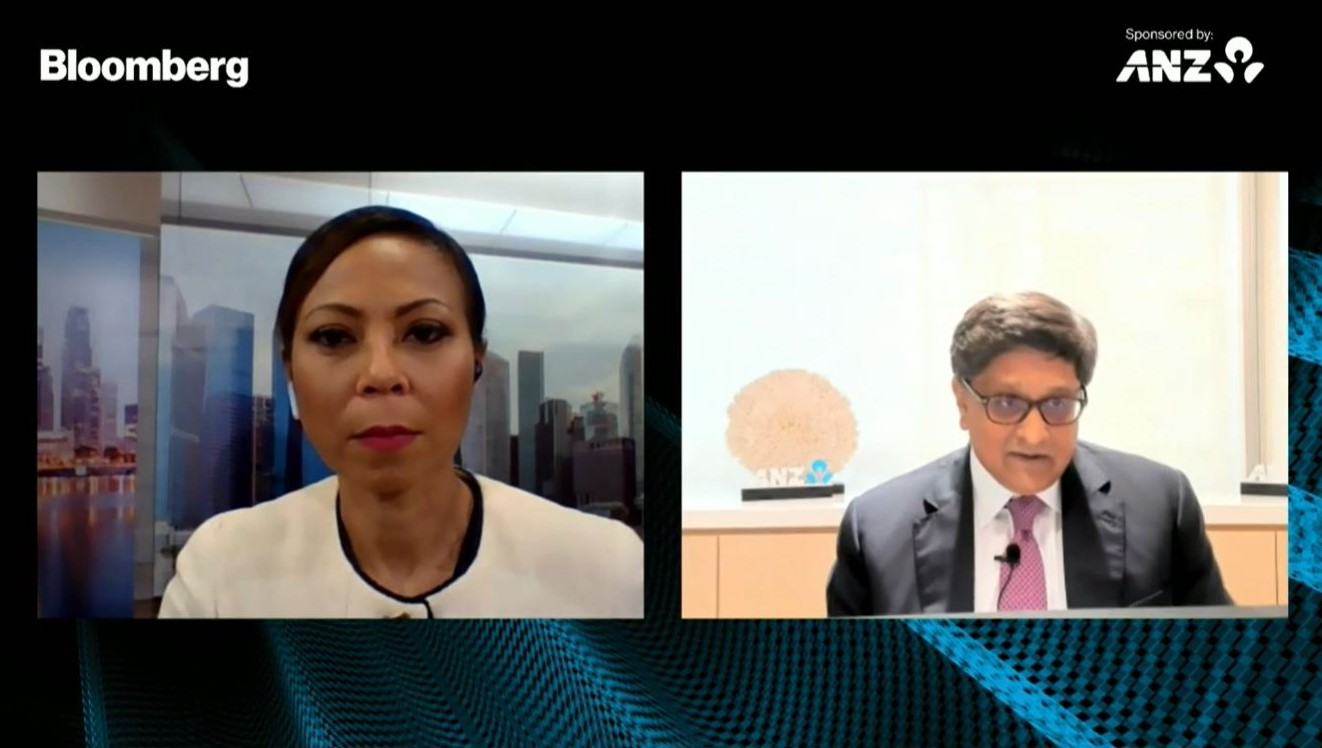
By Mallika Kapur, Bloomberg Live
Globalization will look different in the future. The pandemic has highlighted the risk in an over dependence on China-centric global supply chains and prompted a wave of nationalization and regionalization efforts. The coming decades will see huge and potentially painful reconfigurations of deeply embedded trade networks, which alongside the ongoing digitization trend, will see big changes for the supply, demand, and proximity of labor. International businesses need to adapt quickly or face falling behind.
At Globalization 2.0, we convened leaders and experts who identified opportunities, presented solutions and helped chart a course towards creating a post pandemic world.
Speakers included the following:
- Natalie Black, Her Majesty’s Trade Commissioner for Asia Pacific, United Kingdom
- Farhan Faruqui, Group Executive International, Institutional; Australia & New Zealand Banking Group Ltd (ANZ)
- Parag Khanna, Author, “The Future is Asian”; Founder & Managing Partner, FutureMap
Bloomberg moderators included:
- Haslinda Amin, Television Anchor, Bloomberg
- Emma O’Brien, Managing Editor, Global Business Asia, Bloomberg
Click here to view video of the full discussion.
Key Highlights:

We kicked off our session with a conversation between Bloomberg’s Haslinda Amin and Farhan Faruqui of ANZ who discussed the opportunities and the challenges created by the current world scenario. When it comes to geopolitics, “it is a watershed moment,” Faruqui said. “Growth has certainly subsided. There is a lot more nationalism, tribalism and potentials for conflict and that’s driving many other micro trends below that, which we are monitoring closely.”
One such trend is the unprecedented investment in technology. “Innovation in digital is at historic levels,” Faruqui said. “Technology has been a counter force as economies have been contracting around the world.” He went on to say, according to some surveys, companies have spent an extra $15bn a week on technology during the pandemic. “It has been a massive step change,” Faruqui said, adding that while technology will play a role in many facets of our life, it will fundamentally shift global supply chains and trade. According to Faruqui, that change will be permanent.
Responding to a viewer query about supply chains, Faruqi said while there has been a lot of conversation around China’s relevance around the supply chain perspective, he does not think companies can disassociate entirely from China. “I think what companies will do is try and create a China plus one system whereby they will have alternatives to China, but they will continue to depend on China in terms of supply and certainly for sales and a consumer perspective,” he said.

Haslinda was later joined by Parag Khanna, Author, “The Future is Asian”; Founder & Managing Partner, FutureMap and Natalie Black, Her Majesty’s Trade Commissioner for Asia Pacific, United Kingdom for a discussion around globalization – and whether the pandemic will transform it forever.
She started by asking them whether we are ushering in an era of de-globalization, re-globalization or re-nationalization? Black and Khanna both responded by saying it is impossible to generalize – instead, we are seeing a combination of all three and that we are seeing new regional and global patterns emerge at the same time.
Globalization has been under pressure before. “It has always brought challenges for the haves and have-nots and we will see that sharpening over the coming years and we will see a role for governments to step up and tackle those issues, whether its around the adoption of technology or whether its a question of how we deal with the climate crisis,” Black said. Maybe the pandemic is an opportunity to tackle those issues.
Khanna echoed that. He pointed out that when the rate of growth in trade is slower than the rate of economic growth, many economists argue that globalization is slowing. “I want to go on the record and correct this misperception about how important that is because frankly, it’s not that important,” he said. He added, “when you have large populations in these large domestic service oriented economies like in Asia, it’s not at all surprising that their rate of economic growth, given their relative level of poverty, is going to be higher than the volume they trade.” Khanna said it’s important to take in a holistic picture while assessing whether globalization, as we know it, is under threat.
This virtual briefing was Proudly Sponsored By

——————————
Join the Conversation: #TheFutureOf
Instagram: @BloombergLive
LinkedIn: Bloomberg Live
Twitter: @BloombergLive
Interested in more Bloomberg Live virtual events? Sign up here to get alerts.
——————————